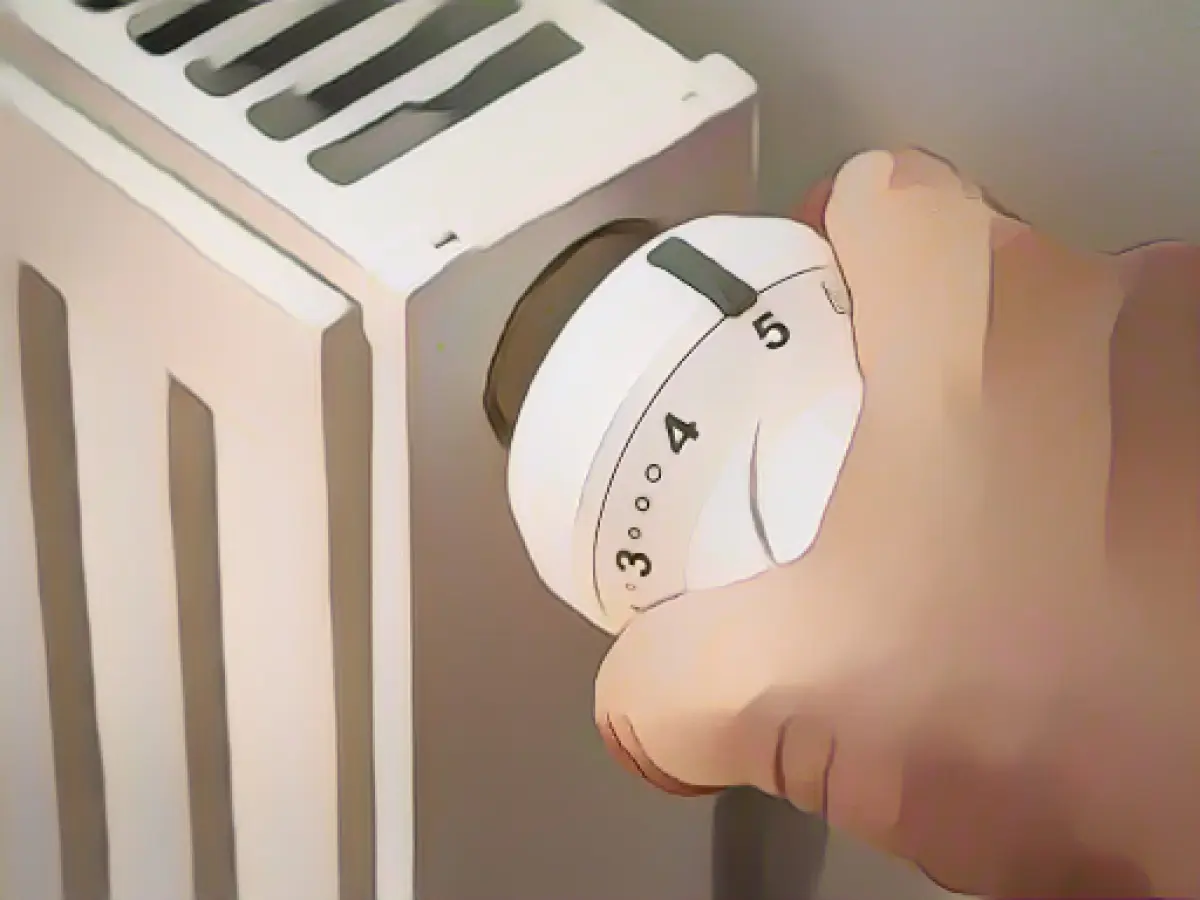Modern heating trends in Hessian homes
In recent years, modern heating systems have gained traction in households across Hesse. A study titled "How does Hesse heat?" reveals that the number of heating systems less than five years old has skyrocketed by 10 percentage points, now accounting for a quarter of all homes. This trend is more prevalent in detached and semi-detached houses, where 27.1% of residents utilize modern heating technology.
Meanwhile, the average age of heating systems in Hesse has dropped dramatically from 18.9 years in 2019 to a mere 13.6 years in 2023. However, despite this decline, the proportion of heating systems older than 20 years still remains relatively high, serving the heating needs of approximately one-third of households.
Traditional energy sources such as gas and oil have seen a decrease in usage, with a fall of around 2 percentage points each. Conversely, the adoption of electric heat pumps is on the rise, with 7.4% of households now benefiting from this eco-friendly technology – this is a significant increase of almost 3 percentage points since 2019.
A fireplace remains the most common supplementary heating source, although its popularity has waned from 44.1% to 31.1%. In its place, electric radiators like fan heaters have seen a marked increase in popularity, with their usage nearly tripling to 24%. Solar thermal energy also enjoys heightened interest, with an impressive surge of 14 percentage points, making it now used by 16.2% of homes.
Collectively, these shifts point towards a growing preference for modern, energy-efficient heating systems among Hesse residents. These new systems not only contribute to reducing carbon emissions and promoting climate change mitigation but also offer enhanced living conditions. The rise in popularity of electric heat pumps and solar thermal energy serves as a testament to this.
Persistently favoring modern heating technologies, Hessian households are leading the charge towards more energy-aware living, which is vital for a sustainable future. As consumers gain more knowledge about their energy consumption, they are making choices that not only benefit their living spaces but also the environment.
In larger context, a shift towards modern energy-efficient heating systems, renewable energy sources, and district heating systems is a global trend.
Renewable Energy Sources
- Solar Thermal Systems: Solar thermal systems convert sunlight into heat, making them both efficient and cost-effective options for space heating and hot water production.
- Heat Pumps: Heat pumps are renowned for their energy efficiency, capturing heat from the outdoor environment and transferring it into living spaces.
- Geothermal Systems: Utilizing the earth's natural heat, geothermal systems provide a reliable heating and cooling solution.
Energy Efficiency Measures
- Insulation: Effective insulation reduces heat loss, saving energy and lowering overall costs.
- Smart Home Technologies: Integrating smart home systems with heating technologies allows for better energy management and optimal usage.
District Heating Systems
In many German cities, including those in Hesse, district heating systems gather and distribute waste heat from power plants and industrial processes, offering an efficient and environmentally friendly heating alternative for multiple buildings.
Specific Insights from "How does Hesse heat?"
If the "How does Hesse heat?" study provides specific data on Hessian households, it would likely reveal detailed statistics on the adoption rates of modern heating technologies and energy sources mentioned above. For example, it might uncover the percentage of households using solar thermal systems or heat pumps, and the distribution of energy sources in the region.
By considering these trends and insights, the shift towards modern heating technologies and energy-efficient living is stunningly apparent in Hessian households. The "How does Hesse heat?" study further underscores this trend, offering a rich source of information on the specifics of this transformation in energy consumption.








